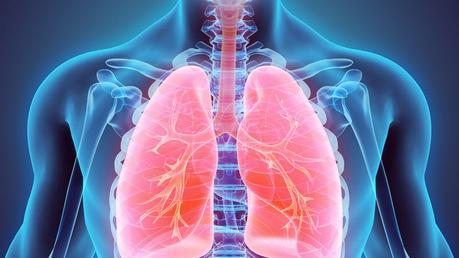
At Diet Doctor, we write a lot about the science supporting potential metabolic, weight loss, and other benefits of low-carb and keto diets. We also highlight potential side effects and suggest ways to prevent or manage them.
But what about absolute contraindications to starting a very low-carb or keto diet?
While we recommend many individuals consult with their healthcare provider first - anyone on diabetes or blood pressure medications and anyone with chronic health conditions like kidney or liver disease - we feel there are very few absolute contraindications to embarking on a keto diet.
For instance, there are rare genetic disorders that inhibit one's ability to digest fats. These are usually diagnosed at a young age, and would indeed be a contraindication to trying keto. In addition, we recommend that breastfeeding mothers not try a keto diet.
Now, a new paper was published in Obesity Reviews considers the scientific support to possible contraindications for a ketogenic diet.
This paper almost lost me when they stated "Moreover, the VLCKD is a fairly extreme dietary manipulation possibly leading to serious adverse events when not medically supervised." However, after this misstep, they go on to dispel the idea that many conditions are contraindications to a keto diet, and instead suggest caution and supervision with certain baseline medical conditions.
Specifically, the authors conclude the following:
- Liver failure - Not a contraindication unless advanced, end-stage liver failure
- Kidney disease - Not a contraindication unless advanced kidney disease
- Type 1 diabetes - Not a contraindication for most as long as they are working closely with an experienced healthcare practitioner
- Use of SGLT-2 inhibitors - Contraindicated due to risk of keotacidosis
- Pregnancy - They conclude it is contraindicated, which we disagree with (see below)
- Breast feeding - Contraindicated (although as we mention in our guide, a more liberal low-carb diet is likely safe)
- Cardiac arrhythmias- Conflicting evidence, detailed below
- Heart failure- contraindicated in severe advanced heart failure, although anecdotal reports suggest benefit in less advanced heart failure
- Respiratory failure - Insufficient evidence to conclude
- Elective surgery - They state there is insufficient evidence to conclude this is a contraindication, yet they conclude it is reasonable to stop a keto diet prior to elective procedures. This is controversial.
(Links above are to our articles covering the topics in more detail.)
As a cardiologist, I was particularly curious about what the authors would say about heart arrhythmias. They mention the potential risk of arrhythmias with keto diets but correctly point out that those were more prominent when meal replacements were used.
With a whole foods keto diet, arrhythmias are extremely rare. It may be related to a selenium deficiency, thus the revised popularity of brazil nuts among low-carb eaters (as few as two Brazil nuts can meet your daily requirement for selenium).
To my surprise, the authors also cited a study claiming low-carb, high-fat diets are associated with an increased risk of atrial fibrillation. As we covered previously, this study defined the lowest carb intake as less than 42% of calories.
That is not low carb! Instead, that study evaluated different versions of high-carb diets. But that wasn't picked up on by the authors of the current study and is a major, albeit uncharacteristic, oversight.
The authors also conclude that pregnancy is a contraindication. They admit there are no human studies and suggest we instead need to rely on animal models and anecdotal reports.
Given our experience and our work with Dr. Michael Fox and others, we feel a keto diet is perfectly acceptable in pregnancy as long as one is followed carefully by a knowledgeable and experienced physician.
The idea that we should all stop a keto diet prior to elective surgery is also an interesting concept for which there is precious little supportive evidence. The authors cite concern over dehydration and how acute stress requires "the use of large amounts of glucose."
Is that true? Wouldn't it require the use of large amounts of fatty acids for those who are keto-adapted? And what about studies showing better surgical outcomes and wound healing with better glucose control? Wouldn't that be a vote in favor of maintaining a keto diet before surgery?
Although I disagree with their ultimate conclusion, at least they admit, "there is not enough evidence to confirm reduced safety outcomes."
We applaud the authors for performing a thoughtful scientific assessment of potential contraindications to a keto diet. We look forward to more data to fill the gaps where we currently need greater guidance. However, the overall conclusion certainly seems to be that many of the commonly discussed contraindications are not truly dangerous.
Thanks for reading,
Bret Scher, MD FACC
Earlier
Do plant or animal proteins contribute to risk of dying? Do fruits, veggies, and grains prevent diabetes? The metabolic impact of keto for those with and without type 2 diabetesStart your FREE 30-day trial!
Get delicious recipes, amazing meal plans, video courses, health guides, and weight loss advice from doctors, dietitians, and other experts.

